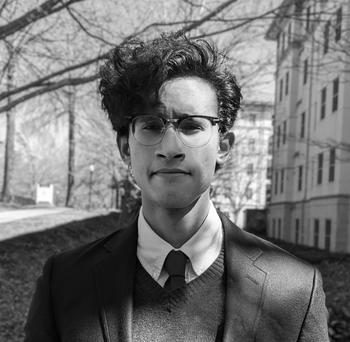OPINION: I benefit from affirmative action, but it needs to end
Recently, my university’s president penned an opinion piece arguing that if Emory were forced to drop its affirmative action policies it would be unable to admit a 'diverse' class of students.
This fails to recognize the detrimental effect of affirmative action, the value of intellectual over racial diversity, and the importance of considering socioeconomic class over race in admissions.
On October 20 Gregory Fenves, my university’s president, penned an opinion piece for The Hill responding to two pending Supreme Court cases that will decide the fate of affirmative action policies in higher education. In the piece, he argues that if Emory were forced to drop its affirmative action policies it would be unable to admit a “diverse” class of students.
What President Fenves fails to recognize is the detrimental effect of affirmative action, the value of intellectual over racial diversity, and the importance of considering socioeconomic class over race in admissions.
When Fenves says “diverse” he doesn’t mean that he wants an intellectually heterogeneous student body. Instead, he wants to give perceived minorities a leg up in applying to elite universities, rather than focusing exclusively on applicants’ merit.
Fenves argues that “[n]o one [at Emory] is accepted or denied admission because of their race.” Yet, in the same breath, he states that absent affirmative action, many minority students wouldn’t be here.
These two premises are in tension. If Fenves’ stance is that substantially fewer minorities would be able to attend Emory if their race was not considered, this implies that race was a deciding factor in their admission.
Emory is putting its proverbial thumb on the scale to give perceived minorities, particularly black and latino students, an advantage over everyone else. I’m mixed-race, and have almost certainly benefited from this system—but that does not mean I endorse it.
[RELATED: POLL: Majority of Americans oppose Affirmative Action policies]
My great-grandfather came to the United States from Mexico in the forties, later serving his country in Vietnam and Korea. My mother came here from Malaysia in the nineties to pursue the American way.
My family has always valued assimilation into the American nation, but policies like affirmative action reinforce the sectarian divides which hinder the unification of the peoples living within the United States. Thankfully, the Supreme Court just heard oral arguments in the first of two cases that may finally see the practice put to an end.
Students for Fair Admissions (SFFA) is suing both Harvard University and the University of North Carolina at Chapel Hill, alleging that their policies violate Title VI of the Civil Rights Act of 1964 by discriminating against Asian students.
SFFA cites the statistical analysis of Duke University professor Peter Arcidiacono, which found that an Asian student with a 25% chance of being admitted to Harvard would see their odds of admissions jump to 95% if they were black instead, with no other variables being altered.
Anecdotes aside, this is hard proof that universities, self-anointed vanguards of progressivism, are engaged in brazen racial discrimination.
Though you’ll almost never hear liberal college students candidly discussing this subject, everyone is acutely aware that minorities have a systemic advantage in the admissions process. There are many wealthy white liberal students following in the footsteps of Elizabeth Warren at our elite universities, claiming their negligible Native heritage on applications to take advantage of a broken system.
I’m guilty of this as well. Being both Asian and Latino, I am often torn as to what I should put down when filling out academic applications.
Effectively, I’m forced to either eschew my asian identity or weather discrimination from some of the most powerful institutions in the western world. Students shouldn’t be forced to choose between their heritage and getting a fair shake from colleges, but that’s what Asian and White High school seniors are mulling over as they prepare to apply to college this year.
While, given the court’s solid conservative majority, it is likely we’ll see affirmative action consigned to the dustbin of history, we should be cautious not to discard the baby with the bathwater.
There are individuals in this country who have been left behind by an increasingly globalized economy. Poverty isn’t exclusive to one race or another. School districts in the southwest, along the Mississippi, and throughout Appalachia struggle to provide resources for their genuinely disadvantaged students.
Instead of considering race in admissions, universities could consider demographic variables like geography, highschool quality, whether or not an individual comes from a single parent household and family income.
If so, disadvantaged students, whether White, Black, or Asian, would get a fair go at admissions and we could avoid racial discrimination: everyone wins.
-------------------------------------------------------------------------------------
Editorials and op-eds reflect the opinion of the authors and not necessarily that of Campus Reform or the Leadership Institute.

